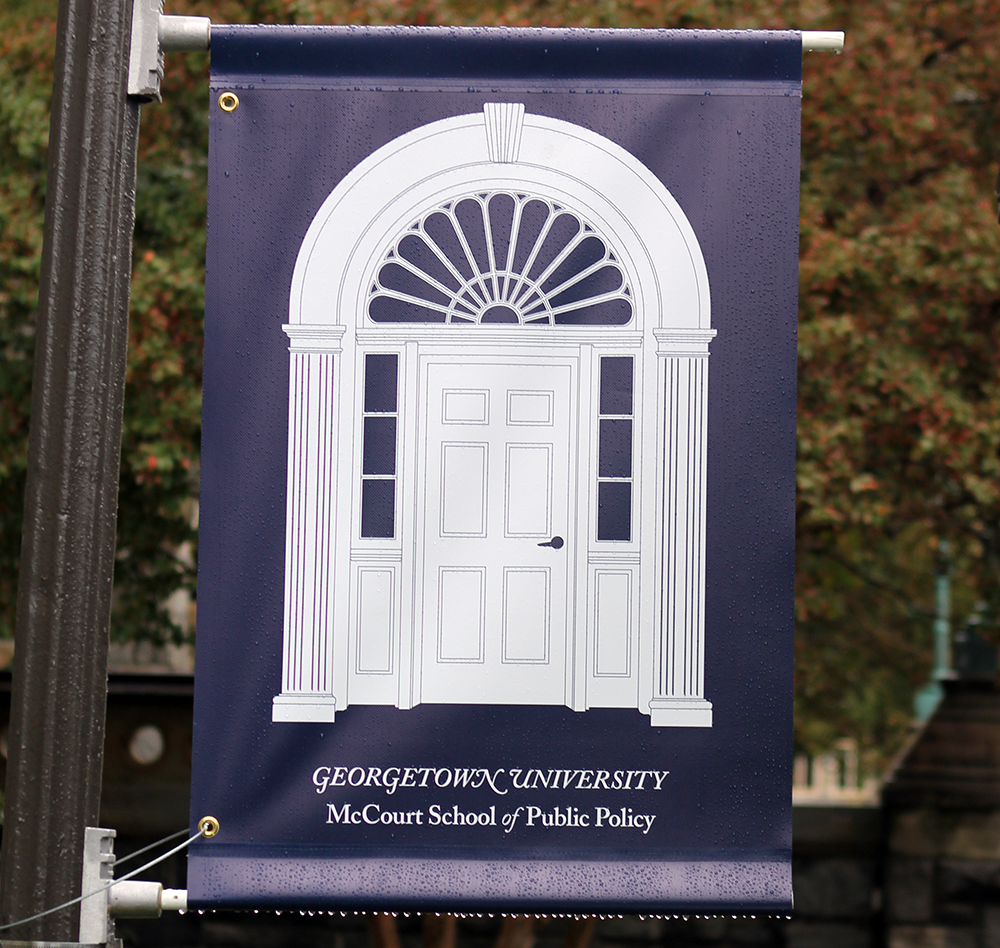The Georgetown University McCourt School of Public Policy launched a community lecture series that will focus on fostering community dialogue about inclusion as it relates to democracy, politics and policy.
Each event will feature a speaker sharing their perspective on and experience with community inclusion, followed by comments from a member of the McCourt School faculty and a question-and-answer session.
The series aims to foster a dialogue among community members and the public, all of whom can attend the events to gain a better understanding of inclusion, according to Sharon Mar, chief of staff at the McCourt School.
“Our goal with these community lecture series is to build a more inclusive community and more importantly develop the knowledge and skills so our community can engage in productive dialogues,” Mar wrote to The Hoya.

The series provides a space for students, community members and the public to engage in lectures and question-and-answer sessions that expand community understanding, according to Maria Cancian, dean of the McCourt School.
“As part of our commitment to inclusion, the McCourt School established this new public lecture series to provide a forum for community dialogue on a wide range of topics,” Cancian wrote to The Hoya.
The inaugural event in the community lecture series took place April 6 featuring speaker Wendy Castillo, senior director of equity, data and impact at the National Urban League, exploring the intersection between inclusion and data analysis. Castillo discussed QuantCrit, a field of study that seeks to apply Critical Race Theory to improve the use of statistical data in social research. Nora Gordon, professor at the McCourt School, offered a follow-up after Castillo’s lecture before Cancian moderated a question-and-answer session.
During the lecture, Castillo said it is crucial to consider the impact of a researcher’s own background when analyzing their work and data.
“Who are the researchers?” Castillo said at the event. “What are their backgrounds? And how might their backgrounds really be influencing the assumptions that they are making? Whose interests are being displayed in the research agenda? Who is benefiting from the research agenda? Who is funding them? And who is their prime audience?”
Castillo said that she encourages researchers to always include positionality statements in quantitative research to make the answers to these questions more transparent.
“The idea of a positionality statement is to reflect on your position in society and think about your biases, your blind spots, it’s also about exploring the position you have, but also the power you have in society,” Castillo said during her lecture.
According to Castillo, remaining cognizant of existing racial biases influences the way we view data.
“Numbers are not neutral, because at every point in the process of collecting and analyzing and interpreting numbers, decisions are made and categories are given,” Castillo said at the event. “We choose the categories, and those are arbitrary. There’s not something that is telling us to choose. We are deciding that subjective choice. Voice and insight data cannot speak for itself. We speak for data; the numbers are accurate.”
In September, the community lecture series will host Randall Kennedy, a Harvard Law School professor and the author of “Say It Loud! On Race, Law, History, and Culture.” Kennedy will discuss the intersection of race and the law. The McCourt School plans to continue hosting lectures, making this an ongoing series.
Gordon hopes that the takeaway from the lecture is to consider a variety of factors before analyzing research results.
“I hope students will take away that with the power of interpreting and analyzing data comes important responsibility,” Gordon wrote to The Hoya.




















